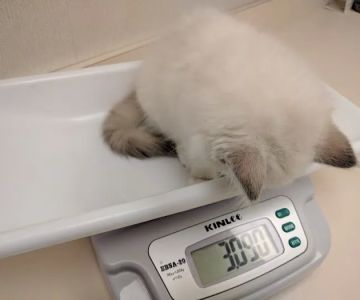What is Veterinary Medicine? A Comprehensive Guide
- 1. What is Veterinary Medicine?
- 2. The Importance of Veterinary Medicine
- 3. Education and Training in Veterinary Medicine
- 4. Different Specialties in Veterinary Medicine
- 5. The Role of Veterinary Medicine in Animal Health
1. What is Veterinary Medicine?
Veterinary medicine is the branch of medical science that focuses on the health care and treatment of animals. Just like human doctors diagnose and treat diseases in humans, veterinarians (veterinary doctors) do the same for animals, ranging from household pets like cats and dogs to livestock and wildlife. Veterinary medicine is a critical part of ensuring the well-being of animals, as well as protecting public health by preventing the spread of zoonotic diseases (diseases that can be transmitted from animals to humans).
Veterinary medicine is a broad field, encompassing everything from routine care, like vaccinations and check-ups, to emergency surgeries and specialized treatments for complex medical conditions. It also includes the study of animal behavior, reproduction, and even preventive health care to keep animals healthy and prevent future illnesses.
2. The Importance of Veterinary Medicine
The significance of veterinary medicine goes far beyond just taking care of pets. Veterinarians play a vital role in safeguarding animal health, which, in turn, contributes to public health. Animals can be carriers of various infectious diseases, some of which can be transmitted to humans. Through veterinary practices, these risks are minimized by early detection and treatment, preventing the spread of diseases in communities.
Moreover, veterinarians contribute to the welfare of livestock, which is essential for food production. Animal health has direct implications for the agricultural industry, as sick animals can lead to a reduced quality of meat, milk, and other animal products. Veterinarians ensure that animals are healthy, which ultimately benefits human food safety and security.
Veterinary medicine also plays an essential role in the conservation of wildlife. Many wildlife species face health challenges due to habitat loss, pollution, and other human-induced factors. Veterinarians working in conservation efforts help by treating injured wildlife, conducting research, and even working with endangered species to ensure their survival.
3. Education and Training in Veterinary Medicine
Becoming a veterinarian requires a significant amount of education and training. Most aspiring veterinarians start with a bachelor's degree in a science-related field, followed by completing a Doctor of Veterinary Medicine (DVM) degree from an accredited veterinary school. The path to becoming a veterinarian typically takes about 8 years of post-secondary education, including undergraduate and veterinary school programs.
In veterinary school, students learn about animal anatomy, physiology, pharmacology, diagnostic procedures, and surgical techniques. Clinical rotations allow students to gain hands-on experience in animal hospitals and clinics, working under the supervision of licensed veterinarians. After completing their DVM degree, many veterinarians also choose to take a licensing exam to practice legally in their state or country.
Some veterinarians may further specialize in specific fields of veterinary medicine, such as internal medicine, surgery, or dermatology, by completing additional years of residency and certification programs. Specialized training provides advanced knowledge in a particular area, allowing veterinarians to treat complex cases and offer high-level care to animals in their specialty.
4. Different Specialties in Veterinary Medicine
Veterinary medicine is a vast and diverse field with many specializations. Depending on their interests and career goals, veterinarians may pursue one of several specialty areas, including:
4.1. Small Animal Medicine
This is the most common veterinary specialty, focusing on the health care of pets like dogs, cats, and rabbits. Veterinarians in this field provide general health care, perform surgeries, and manage chronic conditions like diabetes or heart disease in pets.
4.2. Large Animal Medicine
Veterinarians specializing in large animal medicine typically work with farm animals such as cows, horses, and sheep. These veterinarians may be involved in preventive care, reproductive health, and treating diseases or injuries affecting these animals.
4.3. Veterinary Surgery
Veterinary surgeons are specialized professionals who focus on performing surgeries on animals. This can include routine procedures like spaying and neutering to more complex surgeries such as joint replacements or tumor removals. Veterinary surgeons often have advanced training beyond the general DVM degree.
4.4. Emergency and Critical Care
Emergency and critical care veterinarians specialize in treating animals in urgent, life-threatening situations. These specialists are trained to handle trauma, severe illnesses, and conditions requiring immediate intervention, such as animal accidents or poisoning.
4.5. Veterinary Dentistry
Veterinary dentists focus on oral health, diagnosing and treating dental issues in animals. This specialty is important for pets, as dental disease can lead to other serious health problems if left untreated.
5. The Role of Veterinary Medicine in Animal Health
Veterinary medicine plays an integral role in maintaining the health of animals, ensuring that they lead long, healthy lives. Veterinarians are not only skilled in diagnosing and treating diseases, but they also educate pet owners and farmers on proper nutrition, preventive care, and safety measures to keep animals healthy.
Veterinary medicine also extends to the emotional well-being of animals. Many veterinarians focus on behavior and mental health, helping animals cope with stress, anxiety, and trauma. Behavioral therapies, training, and medication may be used to treat behavioral issues, providing animals with better quality of life.
In summary, veterinary medicine is an essential field that goes beyond just treating sick animals. It is a comprehensive practice that ensures animal well-being, contributes to public health, supports agricultural industries, and helps protect wildlife. Whether you’re considering a career in veterinary medicine or simply want to learn more about how it impacts the world around you, understanding this profession is key to appreciating the value veterinarians bring to both animal and human health.











